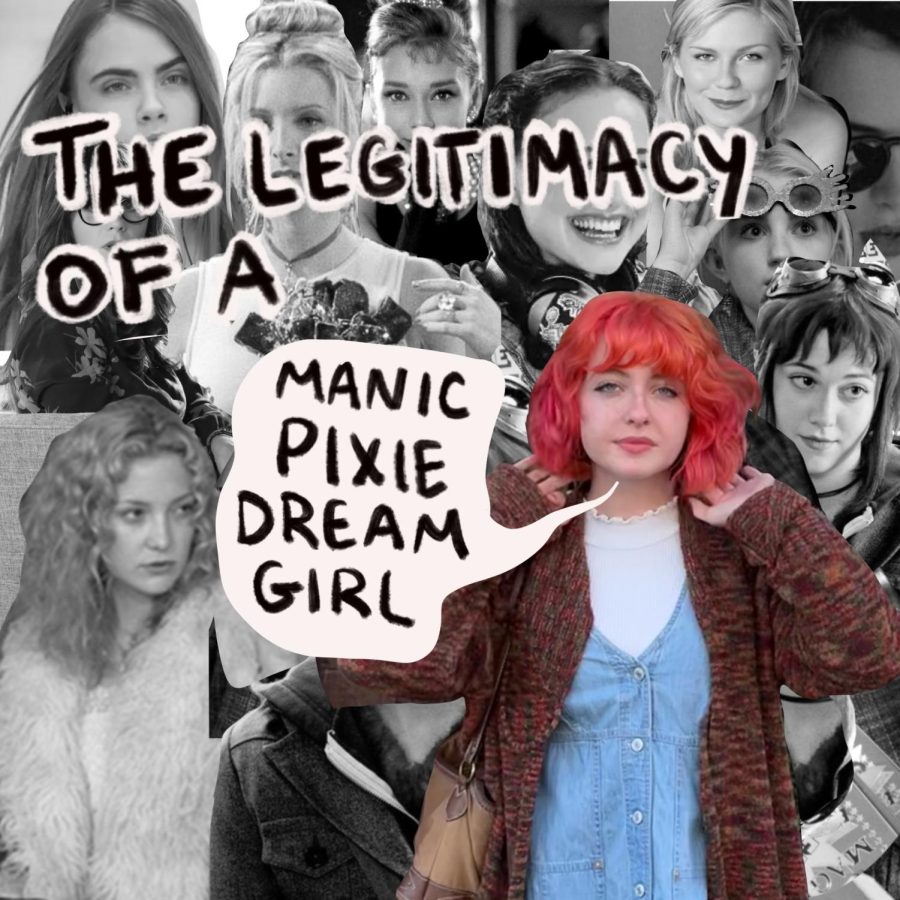The legitimacy of a manic pixie dream girl
When a trope goes too far
Photo by Delia Brandel
By the time I was 17, I had been told I was Luna Lovegood, Jessica Day and Penny Lane.
Manic Pixie Dream Girl defined by Urban Dictionary:
“That bubbly, shallow cinematic creature that exists solely in the fevered imaginations of sensitive writer-directors to teach broodingly soulful young men to embrace life and its infinite mysteries and adventures.”
When I was a first-year student in high school, my boyfriend at the time told me that I reminded him of Phoebe Buffay from “Friends.”
My second year a guy friend of mine showed me “Scott Pilgrim vs the World” because he felt “it was relevant” to us.
By the time I was 17, I had been told I was Luna Lovegood, Jessica Day and Penny Lane. Some said it was my outfits, others my hair and I was told on occasion it was my “overall vibe.”
I never saw this as a bad thing, in many instances I would take it as a compliment. I loved these semi-complex women characters who cry while laughing and don’t apologize for hurting others’ feelings.
I have a Sex Bob-Omb t-shirt and a poster from “Almost Famous” in my childhood bedroom. I’ve watched “New Girl” twice all the way through and I can confidently say “Garden State” is a great movie.
I’m not actually sure I would have ever made the connection to anything else if it wasn’t for the poem “Manic Pixie Dream Girl Says” by Olivia Gatwood.
More specifically, the lines “let me apologize when I get caught acting bigger than you. Let me always wait for this, let me work for this.”
What makes a unique woman (all women are unique) feel the need to act smaller than their body when around a man (or any partner, but notoriously men) they want to love?
This idea that men can be bettered by small components of their female partners, and then can “learn from” these women like we are stepping stones to their human development – where did it come from?
It’s simple. It comes from these fictional characters that put each “kind” of woman into a box. We must find an aesthetic, a genre or a trope to fit into to be seen as attractive or interesting.
Many could say this phenomenon is a result of lazy character writing — that nerdy men look for “magical women ” to change their lives, boost their self-esteem and ultimately disappear so he can continue on unburdened.
Even when the women are seen as more powerful than the men in these circumstances, by the end of their trajectory it is known that the MPDG is nothing more than an accessory to a man’s social, emotional and creative success.
These women have outbursts, they cry, scream and emote — and this is their downfall. Unlike their male counterparts, MPDGs are ultimately messy women who are seen as out of control or childish.
It’s interesting that the “unique” parts of these fictional women are considered endearing, to an extent. There is almost always a moment where the illusion cracks, you see the MPDG through a man’s eyes.
They tokenize the part of women that helps make the men they’re involved with better people. Penny Lane is a secret lover, Jessica Day has a childlike wonder and Ramona Flowers has a mysterious past.
But Penny Lane is the other woman; Jessica Day can’t have serious conversations; Ramona Flowers is repulsed by commitment.
It’s hard to figure out a way to dismantle this male fantasy because any alternative could be considered another box we fit in. Sure, the Anti Manic Pixie Dream Girl is a term, albeit extremely lengthy and hard to say.
But regardless of terms and labels, I think the only thing the people affected by this term can do about it is simply this: do whatever the hell you want.
Do it for yourself. Dye your hair. Cut it. Wear cool clothes, Like weird movies and songs and tv shows.
If you resonate with those women, make sure you put energy into creating a purpose for your own life, instead of men who tokenize your “magic.”
If we are always going to be seen as accessories to men who find us interesting or as a way to experience life in a different way, we should be interesting despite them.
Delia can be reached at [email protected].

Delia is a second-year illustration student, pursuing a career in children's book illustration and animation. This is her third semester on The Spectator. Delia is particularly fond of books, art, her cat Applesauce, music, tea, baby clothes, the 2019 version of “Little Women” and animated movies.

